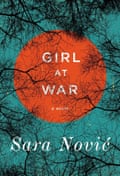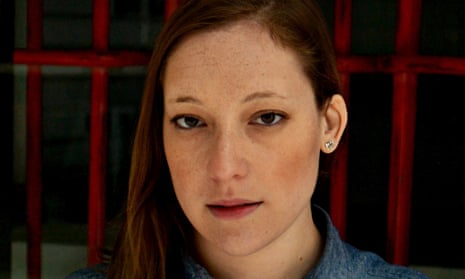My first novel has recently become an audiobook to which I will not listen. The characters have been assigned voices and accents and inflections that I’ll never hear. This is not a complaint, exactly; to have written a book that someone wants to publish in any and all formats is a writer’s dream. But to hold some disc or drive that contains a thing I made, transformed into a new thing I can no longer understand, is a predicament in which few writers find themselves.
This disconnect will appear with increasing frequency as I embark on a series of literary events following the launch of my novel. As an audience member I have been to my share of readings in New York. I go because I am in love with books; I go to be with my friends. But even as a spectator they require a lot of concentration, and sometimes when I’ve worked myself into a cross-eyed headache I turn off my hearing aids and dip below the surface of the sound, let myself drift in the quiet. At my own events I won’t have the choice to opt out.

So far I have read in public only three times, each distressing in the regular ways (an audience!), with the added terror of exposing an increasingly unknowable part of myself – my voice. I can feel my words in my chest and mouth, but can’t be sure of what they sound like out in the world. As far as I’m concerned my voice has no echo; it does not stick to the tape recording. What does it mean to perform for an audience with such limited control of your output?
Books have always provided me with a sense of solace and companionship when I found the hearing world overwhelming. Growing up I filled notebooks with the things I was afraid to say aloud. Libraries, too, seem designed for me – a place where one isn’t supposed to talk, equality under the rule of silence.
Since my hearing loss was progressive, I was educated in spoken English alongside my hearing peers; later, when that became too difficult I learned American Sign Language (ASL) and used interpreters in class. When given the choice between the two, my preference is by far for ASL, in which at least I do not feel self-conscious. But having been brought up in the hearing world with an English education, and now in turn writing and teaching in English, I spend much more time immersed in English than I do in ASL. My ASL is fluent, and I can dream and think in sign, but it is not my primary thinking language.
In reality, the language – or linguistic modality – in which I am most fluent is written English. When I’m writing, my mind and body need not be translated for a hearing audience. I don’t worry that I am unclear, that my lips and tongue will revert to their unpractised ways under pressure, or that I’m speaking at the wrong volume for the background noise I cannot gauge. When I’m reading a book, I do not have to guess in the way that I do when lipreading – paper never covers its mouth or turns its head.
And yet there is a disconcerting entanglement between speech and the practice of being a writer. I frequently see advice from famous authors – Stephen King among them – that you absolutely must read your own work aloud in order to edit it properly. Without listening to your words in your own voice, you can neither fully understand what you’ve written nor hear how to fix it. At best this kind of advice leaves me feeling a little left out, but at worst, I wonder: am I making mistakes a hearing writer wouldn’t?
Another part of writing that seems inextricable from hearing is dialogue. Someone who writes dialogue well is said to “have an ear” for it. I don’t think I write dialogue well. Whether this is just your average writerly paranoia or is linked to the physiology of hearing loss, I can’t say. Relevant here is a cultural divide between the deaf and hearing worlds with regard to frankness. By nature of its visual modality, sign language is more direct than spoken language; there are no euphemisms in ASL. Further, the threshold for “rude” or “inappropriate” is much higher in the deaf world. Stemming perhaps from the days before SMS and email, when it was harder to keep tabs on a deaf person’s wellbeing, there is no shame in bluntly discussing one’s feelings, plans and bodily functions with friends, or even acquaintances.
In the writing world, any trace of this directness translates as “bad dialogue”. “That’s not how people talk,” my workshop mates have said. And of course, they’re right.
In English the phraseology of silence and deafness overwhelmingly signifies the negative. To hear is synonymous with understanding – “I heard about that” or “I hear you” suggests the speaker’s knowledge, comprehension, or capacity for empathy on a given topic, whereas, across the headlines, cries for justice or peace often “fall on deaf ears”. So as long as deafness is a synonym for stupidity or wilful ignorance, d/Deaf and signing people will continue to be “othered” into a position of inferiority. (The capital “D” is used to refer to those who associate themselves with the Deaf community; a minority are medically deaf but choose not to associate with that community.)
In the face of all this, it’s perhaps unsurprising that the works of fiction written in English by d/Deaf writers can be counted on one hand. It is important to note that sign languages foster a rich tradition of storytelling and slam poetry, but books written in English – many d/Deaf people’s second language – are few. On the other hand, this means the experiences of Deaf characters present a rich and relatively unmined cache of material with which to work. Plus, being a Deaf writer means I can write anywhere without being distracted – I wrote most of my first book on the New Jersey Transit Northeast Corridor line.
And while writing in a language that works against me can sometimes seem a less-than-ideal occupation, what is the job of a writer if not to reinvent language, or at least to create the space and tools for the silenced?
I am reminded of Chinua Achebe quoting James Baldwin, who expresses frustration with the limits of the language: “My quarrel with the English language has been that the language reflected none of my experience. But now I began to see the matter in quite another way … Perhaps the language was not my own because I had never attempted to use it, had only learned to imitate it.” Achebe goes on to say: “I recognise of course that Baldwin’s problem is not exactly mine, but I feel the English language will be able to carry the weight of my African experience. But it will have to be a new English.” And while Baldwin’s and Achebe’s problems are much bigger than mine, I can look at the successes of these literary giants and extract a hope that English, with a little work, can carry the Deaf voice, too.
- Sara Nović’s novel Girl at War is published by Little, Brown.

Comments (…)
Sign in or create your Guardian account to join the discussion